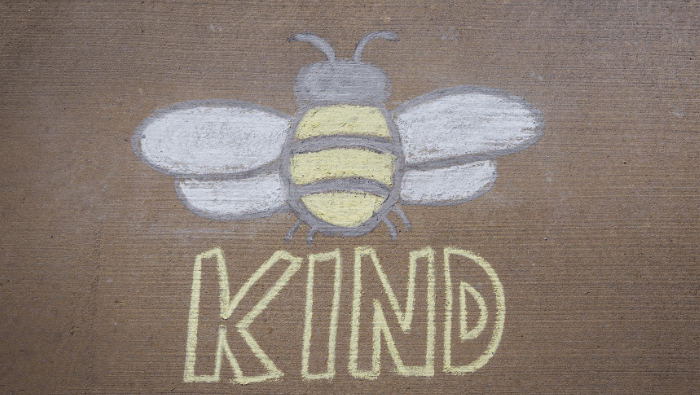A few weeks ago, on a stinking hot morning in January, my family and I drove to Manly in Sydney’s Northern Beaches. We’d promised our older children a trip to Manly WaterWorks, a small water park with three slides right near the wharf.
It had been a fairly lacklustre summer so far – much of it had been spent packing boxes and moving house with a case of COVID thrown in for good measure. The kids certainly needed some well-deserved fun before school went back.
So off we drove to Manly. It had been years since we’d been in this area on a weekend, and it’s fair to say we were naïve. Up and down the narrow and steep streets we drove searching for that illusive parking space.
We finally came across a promising prospect – a man who was loading his surfboard into his boot. “Are you leaving?” my hubby asked him. We waited for a response. But instead of a polite ‘Sorry I’m not’ or even ‘Nah mate’, the man refused to turn his head and grunted something that seemed to mean no.
I obviously know nothing about this man. I don’t know whether he’d had a bad day or whether he had issues with communicating. I don’t know whether he was sick of people driving up and down his street looking for a park.
Regardless, his rude and unkind response immediately put us all in a bad mood. We told the kids that we couldn’t go to the waterpark because we just couldn’t find a park and would have to head home. As you can imagine, that didn’t go down well and the mood in our car was pretty sombre.
We attempted to drive away but hit yet another traffic jam. While we waited, another man who was walking down the road signalled to us that he was about to leave his spot. We followed him up a steep street and there was not only his spot, but another one free and ready for us to drive in. Cue much yelling of “thank you” out the window to the man followed by a fun-filled hour sliding down the slides. This man’s kindness saved our Sunday.
Kindness in Leadership
In the last few weeks, there have been many discussions of kindness and its relationship to leadership. When New Zealand Prime Minister Jacinda Ardern recently resigned, when asked what she wanted to be remembered for, she said ‘As someone who always tried to be kind’. The other important point is that she resigned because she said she had nothing left in the tank. She was being kind to herself by recognising the signs of burnout and stepping aside before things got worse.
When you compare the hyper masculine leadership styles around the world, Ardern is a refreshing change. You couldn’t imagine former US President Donald Trump’s lasting legacy to be kind, could you? His legacy was lighting the fire that caused a violent insurrection on the US Capitol Building, leading to five deaths.
Leadership and kindness aren’t usually words that are seen together, however Arden has shown us otherwise. Whether you do or don’t like her, it’s inarguable that she showed girls you can be a leader on your own terms. You can lead with empathy, kindness and care while still showing strength. She’s been an inspiration to millions.
The impact of kindness
According to the Random Acts of Kindness website, kindness can have tangible physical benefits.
- Kind people have 23% less cortisol (the stress hormone) and age slower than the average population.
- Kindness produces endorphins, a natural painkiller.
- Witnessing kindness can produce oxytocin which can help lower blood pressure and improve heart health.
It’s not just our physical and mental health. When we experience these feel good hormones, we feel more energised and positive. Research has found when we’re happier, we can be up to 12% more productive. One study found that when behaviours such as courtesy, helping and praise were part of the company goals, there was often more productivity, efficiency and lower turnover.
Kindness can have an impact on sales too. A company with good customer service and kind community managers are more likely to receive positive reviews online. Many people won’t buy a product or service until they’ve read some customer reviews and seen social proof. When they see that other people have had a positive interaction, particularly if an issue has been solved in a positive way, they’re more likely to also buy the product or service.
Choosing kindness
Kindness is a choice and it’s something that often needs to be practiced, particularly if you aren’t familiar with it. You may have grown up in a home where mistakes were met with anger rather than understanding. You may not be used to giving compliments or receiving them. You may not be very kind to yourself.
Over the last few years, I’ve made a conscious decision to do my best to choose kindness. Here are some things I’ve been thinking about and may help others who want to choose kindness:
- Be aware of your surroundings and offer if someone needs a helping hand.
- When someone makes a mistake, rather than getting upset or angry, try being understanding and express your feelings in a calm and rational way.
- Reach out to someone who is new at work or in your area.
- Be kind to yourself. Do you talk to yourself in a way you’d talk to a friend or do you criticise yourself? Do you take care of yourself?
As Maya Angelou said:
“I’ve learned that people will forget what you said, people will forget what you did, but people will never forget how you made them feel.”
It’s up to all of us to create a more caring and kind world.

